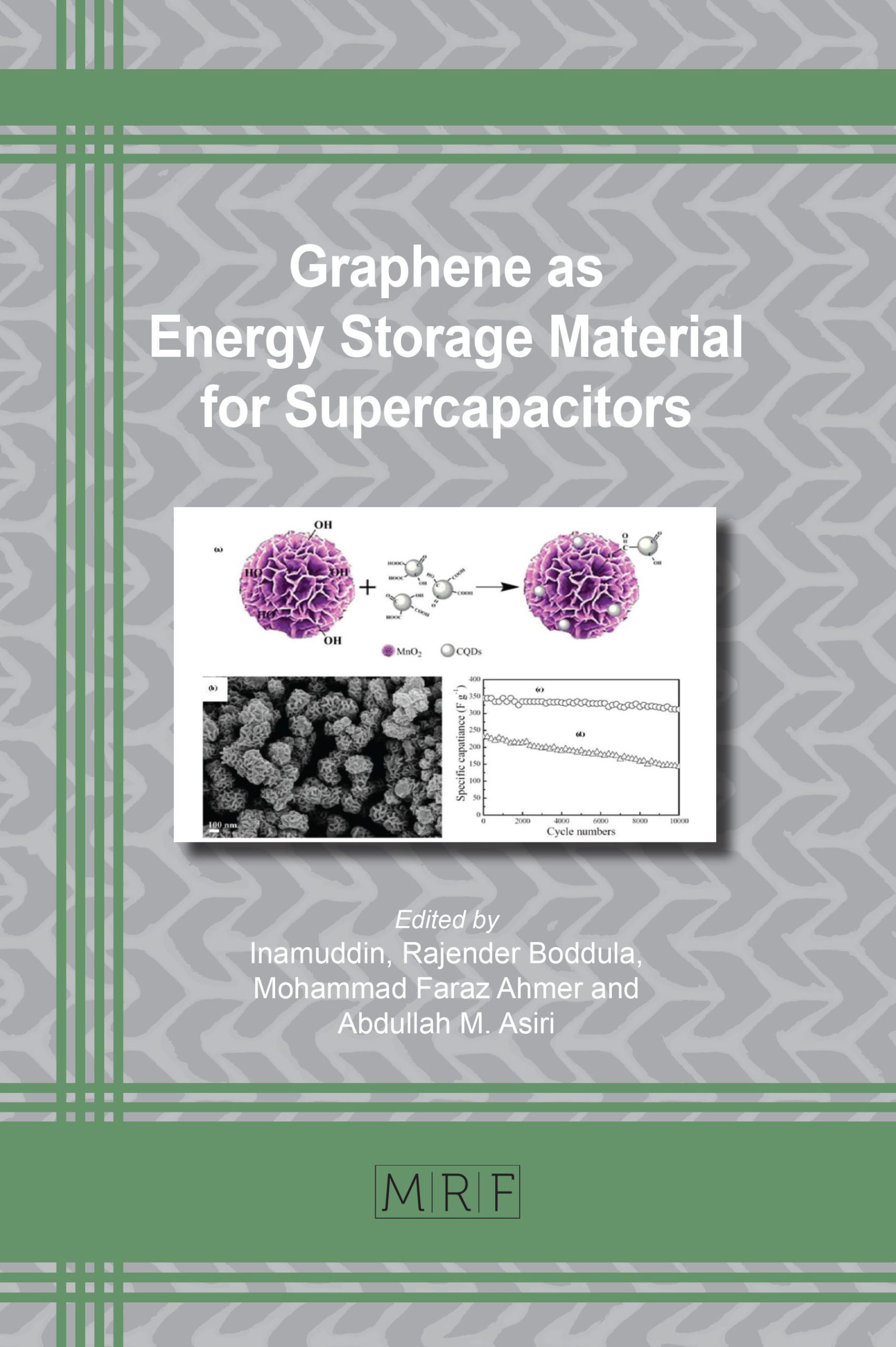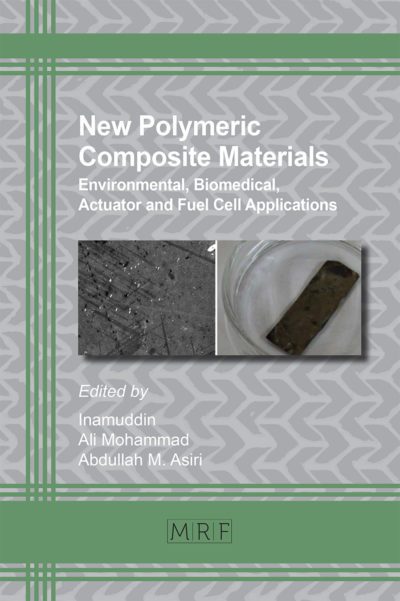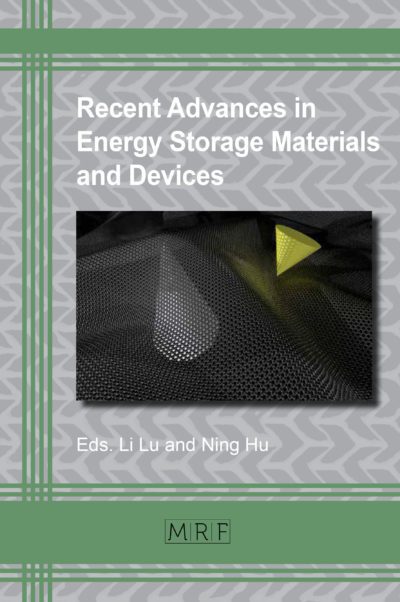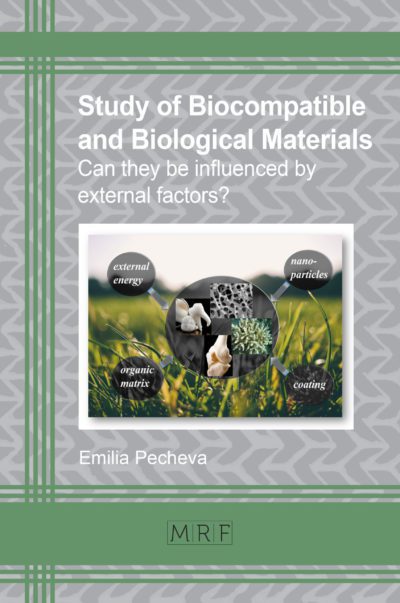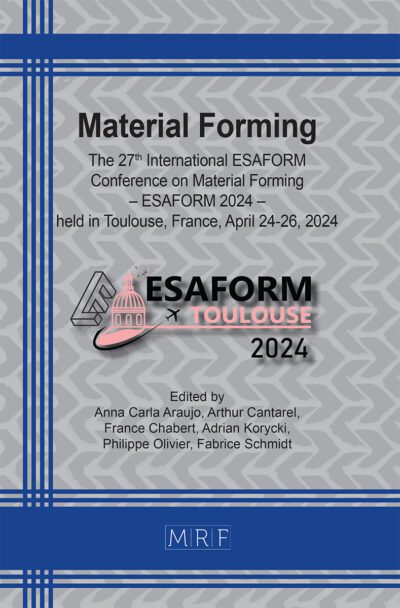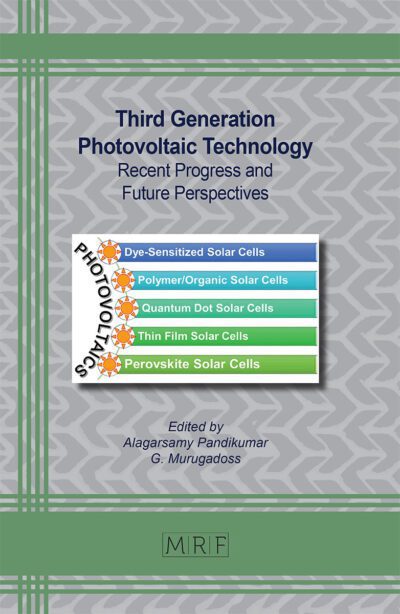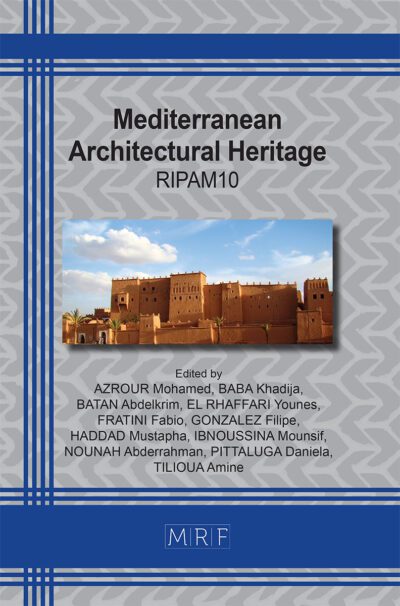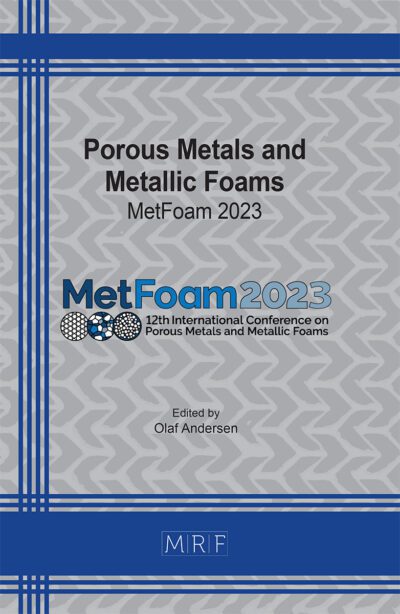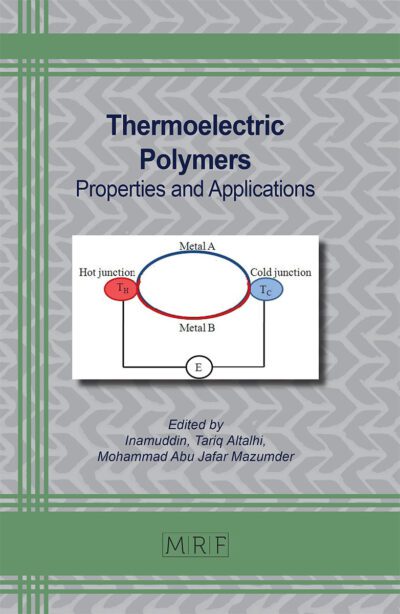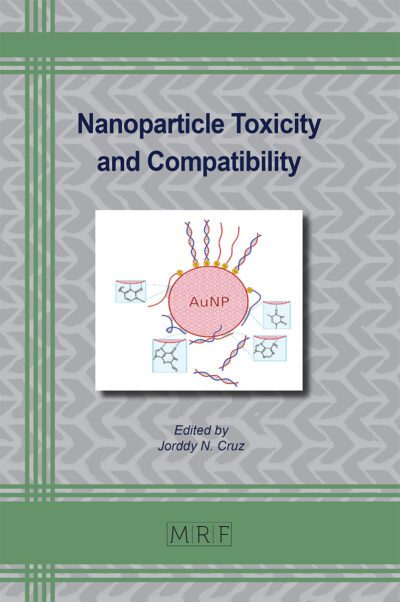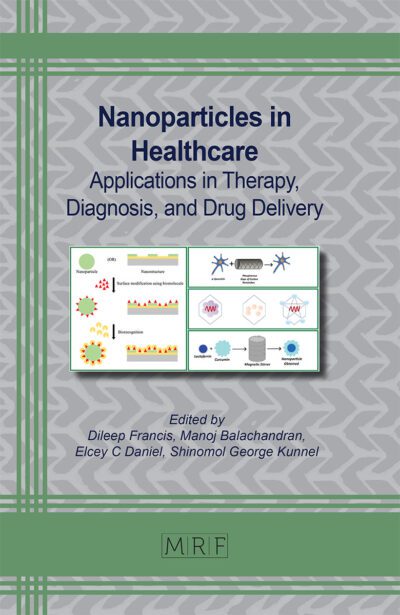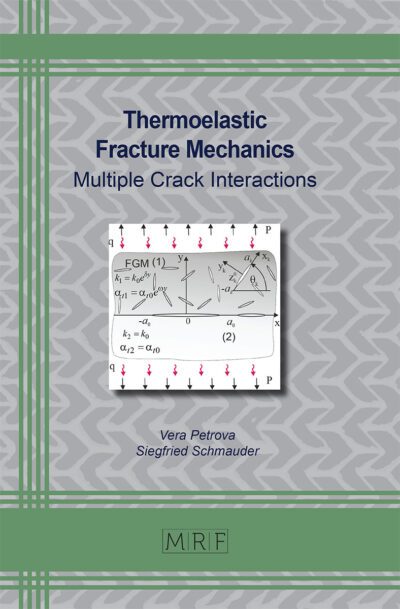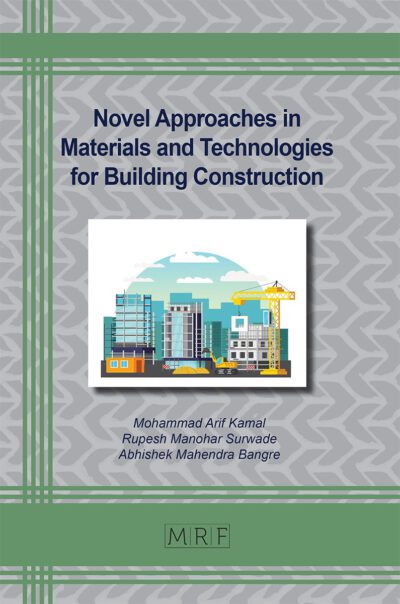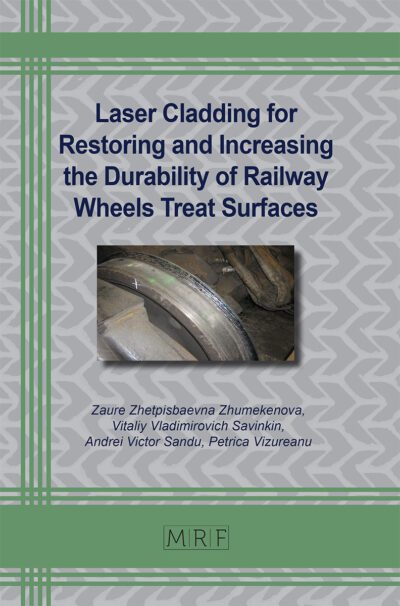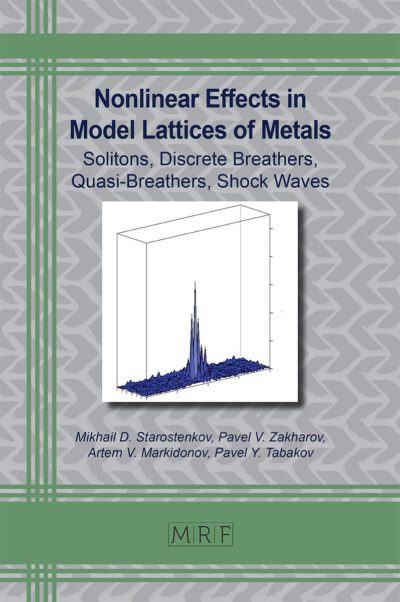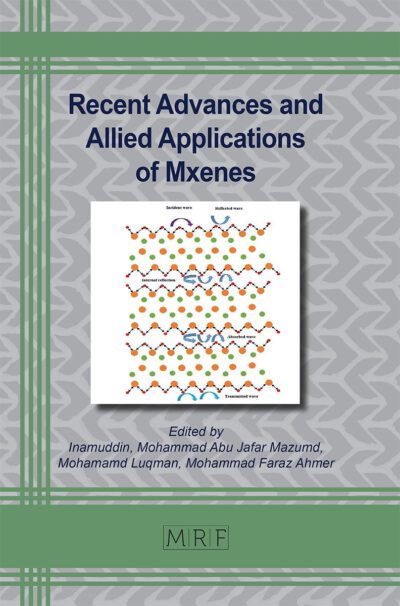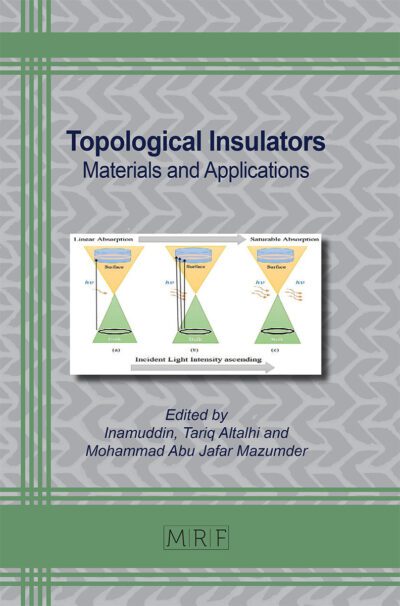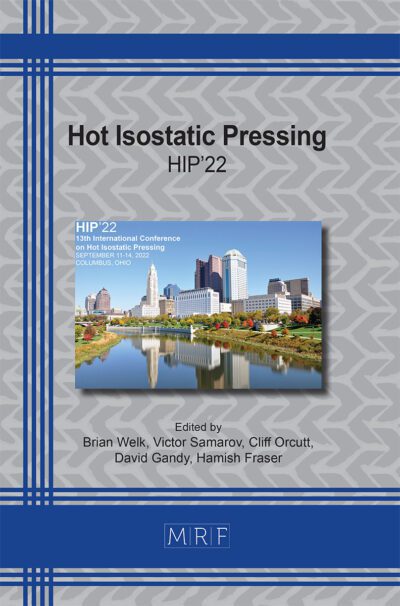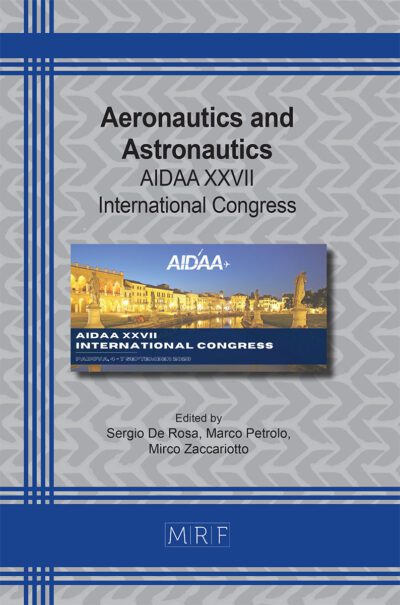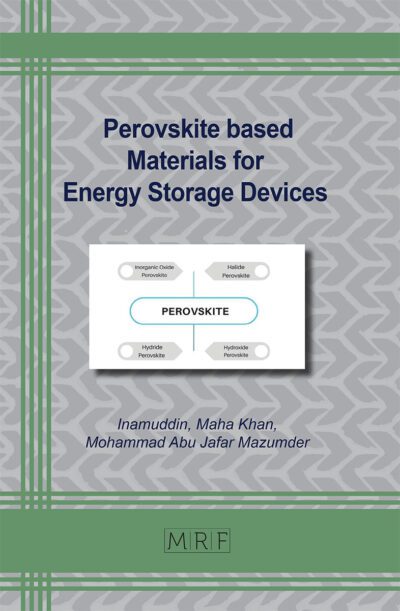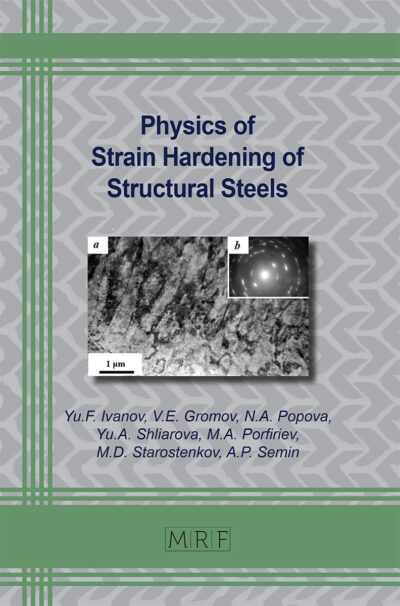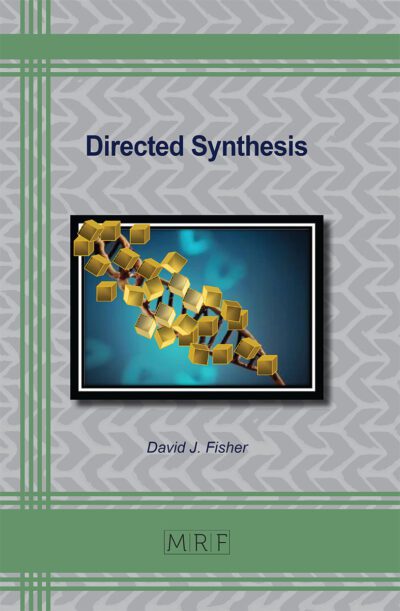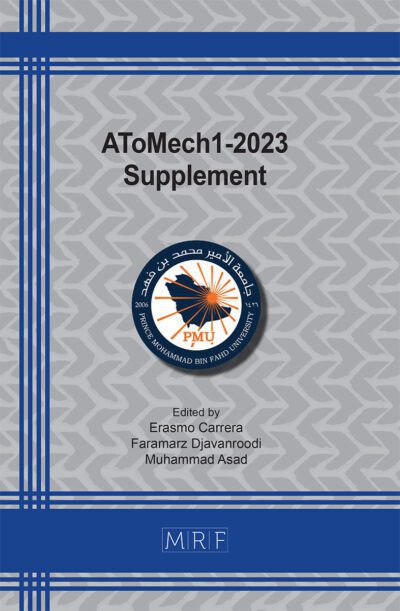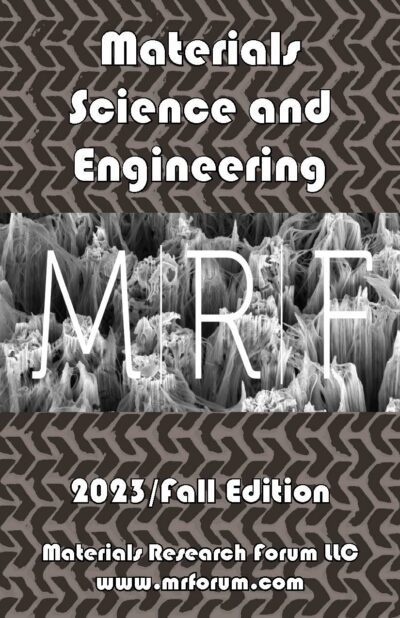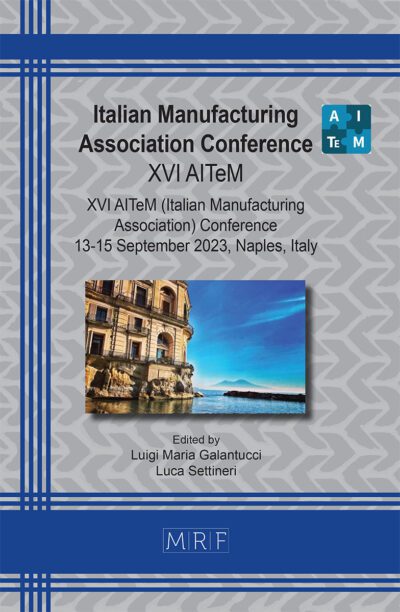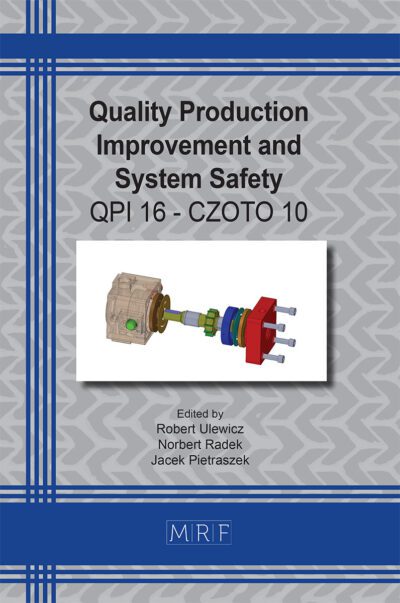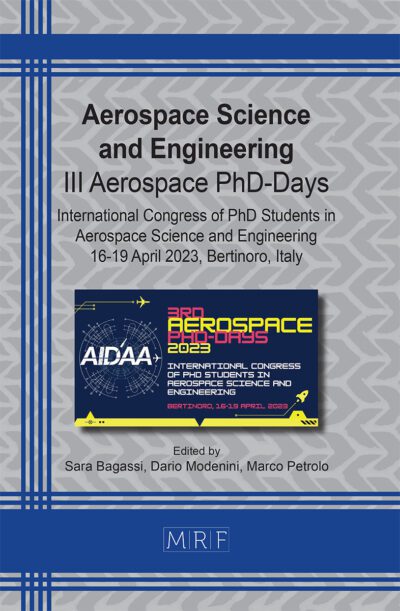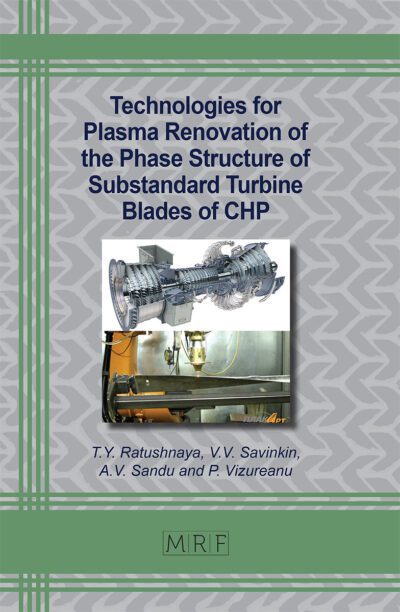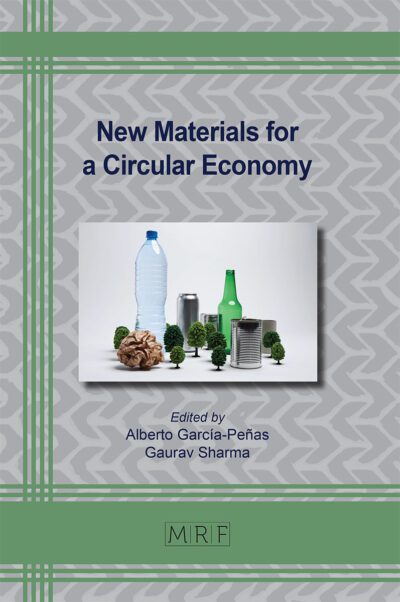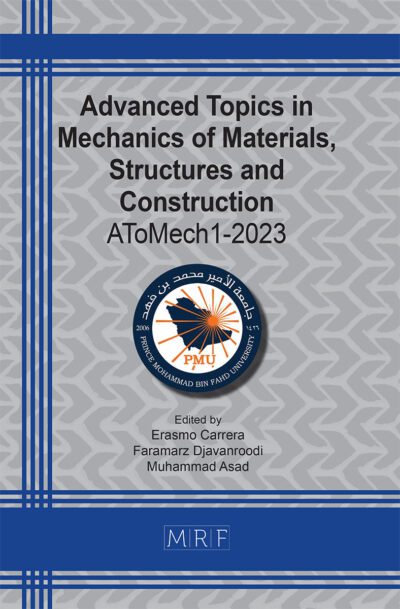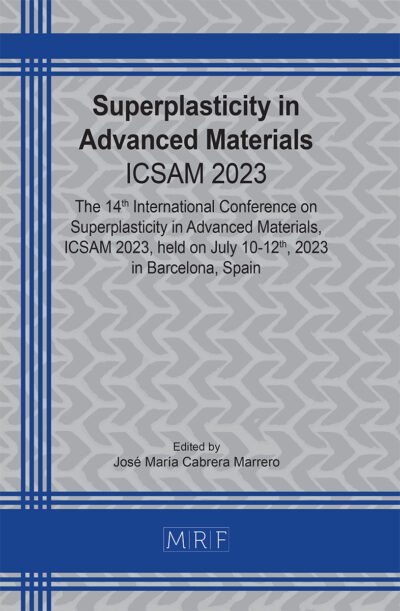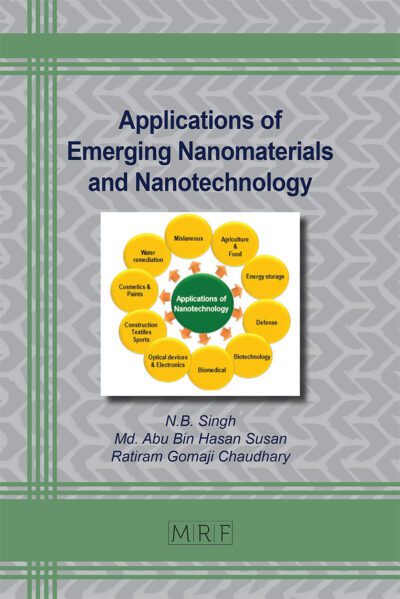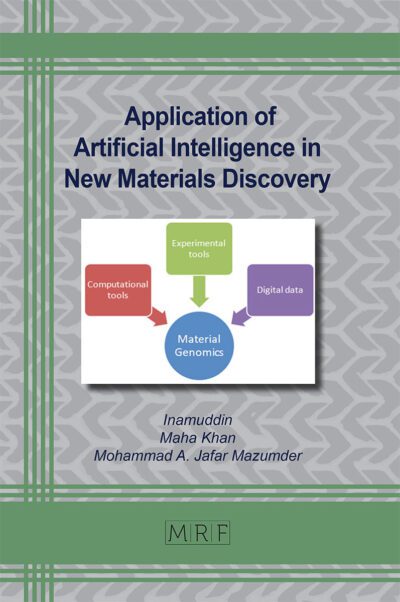Graphene as Energy Storage Material for Supercapacitors
Eds. Inamuddin, Rajender Boddula, Mohammad Faraz Ahmer and Abdullah M. Asiri
Materials Research Foundations Vol. 64
Publication Date 2020, 284 Pages
Print ISBN 978-1-64490-054-3 (release date January, 2020)
ePDF ISBN 978-1-64490-055-0
DOI: 10.21741/9781644900550
The book presents a comprehensive review of graphene-based supercapacitor technology. It focuses on synthesis, characterization, fundamental properties and promising applications of graphene materials and various types of graphene-based composites. The wide range of applications include electric power systems of portable electronics, hybrid-electric vehicles, mobile phones etc.
Keywords
Graphene, Energy Storage Materials, Supercapacitors, Micro-Supercapacitors, Self-Healable Supercapacitors, Graphene-Based ZnO Nanocomposites, Defect Engineered Graphene Materials, Electric Power Systems
flyer
Table of Contents
Fabrication Approaches for Graphene in Supercapacitors
Riya Thomas, B. Manoj
Correlation between Synthesis and Properties of Graphene
Praveen Mishra, Badekai Ramachandra Bhat
Two–Dimensional Graphene Materials for Supercapacitors
S. Hariganesh, S. Vadivel, Bappi Paul , B. Saravanakumar, N. Balasubramanian, Vikas Gupta
Three-Dimensional Graphene Materials for Supercapacitors
Gurjinder Kaur, Narasimha Vinod Pulagara, Indranil Lahiri
Graphene-Based Materials for Micro-Supercapacitors
Akanksha R. Urade, Gurjinder Kaur, Indranil Lahiri
Graphene-Based Materials for Self-Healable Supercapacitors
Ramyakrishna Pothu, Sashivinay Kumar Gaddam, S. Vadivel, Rajender Boddula
Graphene-Based ZnO Nanocomposites for Supercapacitor Applications
Udaya Bhat K., Sunil Meti
Defect Engineered Graphene Materials for Supercapacitors
Madhabi Devi and Ashok Kumar
Future Prospects and Challenges of Graphene-Based Supercapacitor
Paul Thomas, Nelson Pynadathu Rumjit, Chin Wei Lai, Mohd Rafie Bin Johan
Related sites:
https://en.wikipedia.org/wiki/Supercapacitor
About the Editors
Dr. Inamuddin is currently working as Assistant Professor in the Chemistry Department, Faculty of Science, King Abdulaziz University, Jeddah, Saudi Arabia. He is a permanent faculty member (Assistant Professor) at the Department of Applied Chemistry, Aligarh Muslim University, Aligarh, India. He obtained Master of Science degree in Organic Chemistry from Chaudhary Charan Singh (CCS) University, Meerut, India, in 2002. He received his Master of Philosophy and Doctor of Philosophy degrees in Applied Chemistry from Aligarh Muslim University (AMU), India, in 2004 and 2007, respectively. He has extensive research experience in multidisciplinary fields of Analytical Chemistry, Materials Chemistry, and Electrochemistry and, more specifically, Renewable Energy and Environment. He has worked on different research projects as project fellow and senior research fellow funded by University Grants Commission (UGC), Government of India, and Council of Scientific and Industrial Research (CSIR), Government of India. He has received Fast Track Young Scientist Award from the Department of Science and Technology, India, to work in the area of bending actuators and artificial muscles. He has completed four major research projects sanctioned by University Grant Commission, Department of Science and Technology, Council of Scientific and Industrial Research, and Council of Science and Technology, India. He has published 147 research articles in international journals of repute and eighteen book chapters in knowledge-based book editions published by renowned international publishers. He has published 60 edited books with Springer (U.K.), Elsevier, Nova Science Publishers, Inc. (U.S.A.), CRC Press Taylor & Francis Asia Pacific, Trans Tech Publications Ltd. (Switzerland), IntechOpen Limited (U.K.), and Materials Research Forum LLC (U.S.A). He is a member of various journals’ editorial boards. He is also serving as Associate Editor for journals (Environmental Chemistry Letter, Applied Water Science and Euro-Mediterranean Journal for Environmental Integration, Springer-Nature), Frontiers Section Editor (Current Analytical Chemistry, Bentham Science Publishers), Editorial Board Member (Scientific Reports-Nature), Editor (Eurasian Journal of Analytical Chemistry), and Review Editor (Frontiers in Chemistry, Frontiers, U.K.) He is also guest-editing various special thematic special issues to the journals of Elsevier, Bentham Science Publishers, and John Wiley & Sons, Inc. He has attended as well as chaired sessions in various international and national conferences. He has worked as a Postdoctoral Fellow, leading a research team at the Creative Research Initiative Center for Bio-Artificial Muscle, Hanyang University, South Korea, in the field of renewable energy, especially biofuel cells. He has also worked as a Postdoctoral Fellow at the Center of Research Excellence in Renewable Energy, King Fahd University of Petroleum and Minerals, Saudi Arabia, in the field of polymer electrolyte membrane fuel cells and computational fluid dynamics of polymer electrolyte membrane fuel cells. He is a life member of the Journal of the Indian Chemical Society. His research interest includes ion exchange materials, a sensor for heavy metal ions, biofuel cells, supercapacitors and bending actuators.
Dr. Rajender Boddula is currently working as Chinese Academy of Sciences-President’s International Fellowship Initiative (CAS-PIFI) at National Center for Nanoscience and Technology (NCNST, Beijing). He obtained Master of Science in Organic Chemistry from Kakatiya University, Warangal, India, in 2008. He received his Doctor of Philosophy in Chemistry with the highest honours in 2014 for the work entitled “Synthesis and Characterization of Polyanilines for Supercapacitor and Catalytic Applications” at the CSIR-Indian Institute of Chemical Technology (CSIR-IICT) and Kakatiya University (India). Before joining National Center for Nanoscience and Technology (NCNST) as CAS-PIFI research fellow, China, worked as senior research associate and Postdoc at the Aligarh Muslim University (AMU, India) and National Tsing-Hua University (NTHU, Taiwan) respectively in the fields of bio-fuel and CO2 reduction applications. His academic honors include University Grants Commission National Fellowship and many merit scholarships, study-abroad fellowships from Australian Endeavour Research Fellowship, and CAS-PIFI. He has published many scientific articles in international peer-reviewed journals and has authored around twenty book chapters, and he is also serving as an editorial board member and a referee for reputed international peer-reviewed journals. He has published edited books with Springer (UK), Elsevier, Materials Research Forum LLC (USA) and CRC Press Taylor & Francis group. His specialized areas of research are energy conversion and storage, which include sustainable nanomaterials, graphene, polymer composites, heterogeneous catalysis for organic transformations, environmental remediation technologies, photoelectrochemical water-splitting devices, biofuel cells, batteries and supercapacitors.
Dr. Mohammad Faraz Ahmer is presently working as Assistant Professor in the Department of Electrical Engineering, Mewat Engineering College, Nuh Haryana, India, since 2012 after working as Guest Faculty in University Polytechnic, Aligarh Muslim University Aligarh, India, during 2009-2011. He completed M.Tech. (2009) and Bachelor of Engineering (2007) degrees in Electrical Engineering from Aligarh Muslim University, Aligarh in the first division. He obtained a Ph.D. degree in 2016 on his thesis entitled “Studies on Electrochemical Capacitor Electrodes”. He has published six research papers in reputed scientific journals. He has edited two books with Materials Research Forum LLC, U.S.A. His scientific interests include electrospun nano-composites and supercapacitors. He has presented his work at several conferences. He is actively engaged in searching of new methodologies involving the development of organic composite materials for energy storage systems.
Prof. Abdullah M. Asiri is the Head of the Chemistry Department at King Abdulaziz University since October 2009 and he is the founder and the Director of the Center of Excellence for Advanced Materials Research (CEAMR) since 2010 till date. He is the Professor of Organic Photochemistry. He graduated from King Abdulaziz University (KAU) with B.Sc. in Chemistry in 1990 and a Ph.D. from University of Wales, College of Cardiff, U.K. in 1995. His research interest covers color chemistry, synthesis of novel photochromic and thermochromic systems, synthesis of novel coloring matters and dyeing of textiles, materials chemistry, nanochemistry and nanotechnology, polymers and plastics. Prof. Asiri is the principal supervisors of more than 20 M.Sc. and six Ph.D. theses. He is the main author of ten books of different chemistry disciplines. Prof. Asiri is the Editor-in-Chief of King Abdulaziz University Journal of Science. A major achievement of Prof. Asiri is the research of tribochromic compounds, a new class of compounds which change from slightly or colorless to deep colored when subjected to small pressure or when grind. This discovery was introduced to the scientific community as a new terminology published by International Union of Pure and Applied Chemistry (IUPAC) in 2000. This discovery was awarded a patent from European Patent office and from UK patent. Prof. Asiri involved in many committees at the KAU level and on the national level. He took a major role in the advanced materials committee working for King Abdulaziz City for Science and Technology (KACST) to identify the national plan for science and technology in 2007. Prof. Asiri played a major role in advancing the chemistry education and research in KAU. He has been awarded the best researchers from KAU for the past five years. He also awarded the Young Scientist Award from the Saudi Chemical Society in 2009 and also the first prize for the distinction in science from the Saudi Chemical Society in 2012. He also received a recognition certificate from the American Chemical Society (Gulf region Chapter) for the advancement of chemical science in the Kingdome. He received a Scopus certificate for the most publishing scientist in Saudi Arabia in chemistry in 2008. He is also a member of the editorial board of various journals of international repute. He is the Vice- President of Saudi Chemical Society (Western Province Branch). He holds four USA patents, more than one thousand publications in international journals, several book chapters and edited books.

